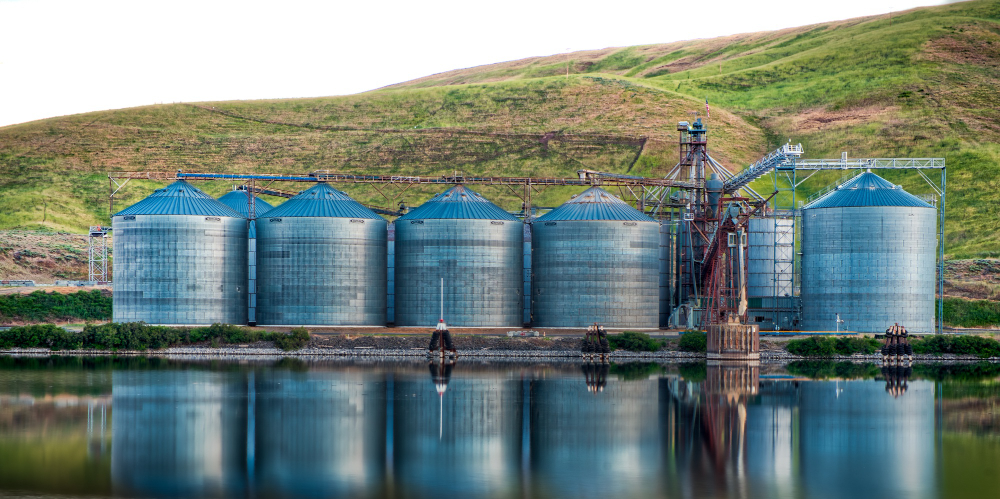Water is a precious resource, and efficient water storage and reuse practices can make a huge difference in both our personal day-to-day water usage, as well as the larger environmental landscape. In this blog post, we’ll be exploring some of the major advantages to having proper water storage systems installed within your home—from decreasing your utility bills to improving local groundwater conditions. With increasing levels of drought in many areas of the world (notably California) it has never been more important for individuals and businesses alike to take measures towards conserving our most valuable natural resource. Keep on reading for all you need to know about installing effective methods of water storage so that you can protect yourself from fluctuating prices —and help ensure there is enough fresh water available for future generations.
Understanding the benefits of water storage and reuse
Water is a precious resource that sustains life on our planet. As the global population grows, so does the demand for clean water. Water storage and reuse are considered some of the best solutions to deal with the scarcity of this resource. The benefits of water storage and reuse are numerous: it saves money, conserves energy, and reduces our environmental footprint. With proper water storage and reuse, we can avoid overusing our freshwater sources, and ensure adequate supplies for future generations. Plus, it reduces reliance on freshwater depletion and saves energy required for the collection, treatment, and distribution of water. By understanding the benefits of these solutions, we can make informed decisions on how we use our water resources and protect them for a better tomorrow.
Effective water management through rainwater harvesting
Rainwater harvesting is a wise solution for effective water management. It not only helps ensure that we make the most of every drop of rainwater but also reduces the burden on traditional water sources. This method involves the collection, storage, and filtration of rainwater for later use. The benefits of this practice are vast – it saves money, reduces water bills, and can even improve the quality of the water you use at home. Moreover, rainwater harvesting has minimal environmental impacts compared to traditional water sources, on top of being a sustainable practice for long-term water management. Overall, rainwater harvesting is an effective way to conserve water, mitigate water scarcity and ensure we use this precious resource in the most efficient way possible. for more info visit Hydrera water management solutions.
Explore ways to increase your home’s water efficiency
In today’s world where fresh water is becoming a scarce resource, it is vital to practice water efficiency at home. There are many ways to increase your home’s water efficiency without compromising on your daily activities. One way is to install low-flow showerheads and faucets, which can effectively cut down water usage. Another simple yet effective solution is to repair any leaks in your plumbing, as even small drips can add up to a significant amount of wasted water. Apart from these, you can also opt for water-efficient appliances such as washing machines and dishwashers, which consume less water. By adopting these practices, you will not only help save one of our planet’s most valuable resources but also reduce your water bill significantly.
Look into low-maintenance options for water storage containers
Water storage containers are essential for anyone who wants to ensure a steady supply of clean water in case of emergencies or interruptions in the main water supply. However, not everyone has the time or energy to maintain these containers regularly. That’s where low-maintenance options come in handy. Whether it’s a collapsible water storage bag or a sturdy plastic tank, these containers require minimal effort to clean and maintain. Plus, they come in a wide range of sizes, so you can choose the one that suits your needs best. With a low-maintenance water storage container, you can have peace of mind knowing that you’re always prepared for any water-related crisis.
Examine the cost savings associated with water reuse systems
Water reuse systems are becoming increasingly popular due to the cost savings they offer. By treating and reusing wastewater, businesses can reduce their water bills and decrease the strain on local water supplies. In addition, water reuse systems can benefit the environment by reducing the amount of wastewater that needs to be treated and discharged. The initial investment required to implement a water reuse system can be offset by the long-term financial benefits. By analyzing water usage patterns and finding ways to reuse water, businesses can not only save money, but also contribute to a more sustainable future.
Investigate various filtration systems for clean, safe drinking water
Clean, safe drinking water is a basic necessity for human survival. Unfortunately, not everyone has access to it. In fact, nearly 2.2 billion people worldwide lack access to safe drinking water. This is where filtration systems come into play. There are various filtration systems available in the market, each with its own unique features and benefits. From simple carbon filters to reverse osmosis systems, each filtration system utilizes different technologies to remove impurities and contaminants from water. By investigating various filtration systems, we can find the most efficient and cost-effective solution to the water crisis. With clean water at our disposal, we can lead happier, healthier lives, and ensure a better future for our planet.
















